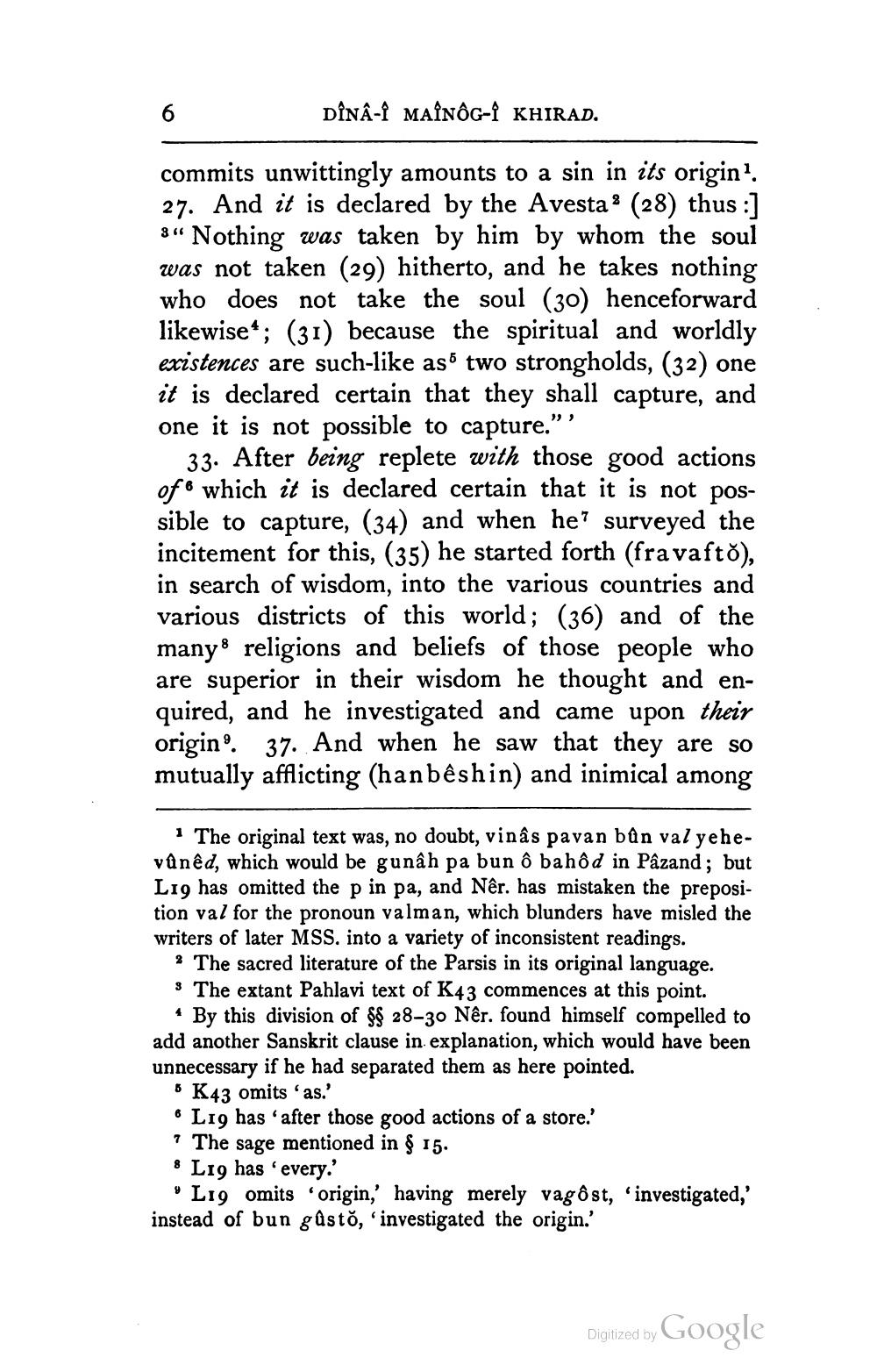________________
DÎNÂ-T MAÎNÔG-I KHIRAD.
commits unwittingly amounts to a sin in its origin?, 27. And it is declared by the Avesta (28) thus :) 8" Nothing was taken by him by whom the soul was not taken (29) hitherto, and he takes nothing who does not take the soul (30) henceforward likewise*; (31) because the spiritual and worldly existences are such-like as two strongholds, (32) one it is declared certain that they shall capture, and one it is not possible to capture.”
33. After being replete with those good actions of which it is declared certain that it is not possible to capture, (34) and when he? surveyed the incitement for this, (35) he started forth (fra vafto), in search of wisdom, into the various countries and various districts of this world; (36) and of the many8 religions and beliefs of those people who are superior in their wisdom he thought and enquired, and he investigated and came upon their origin'. 37. And when he saw that they are so mutually afflicting (hanbêshin) and inimical among
1 The original text was, no doubt, vinâs pavan bûn val yehevůned, which would be gunâh pa bun ô bahôd in Pâzand; but L19 has omitted the p in pa, and Nêr. has mistaken the preposition val for the pronoun valman, which blunders have misled the writers of later MSS. into a variety of inconsistent readings. 3 The sacred literature of the Parsis in its original language.
The extant Pahlavi text of K43 commences at this point. 4 By this division of $8 28-30 Nêr. found himself compelled to add another Sanskrit clause in explanation, which would have been unnecessary if he had separated them as here pointed. • K43 omits 'as.'
L19 has after those good actions of a store.' ? The sage mentioned in $ 15. 8 L19 has 'every
L19 omits origin,' having merely vagôst, 'investigated,' instead of bun gūsto, investigated the origin.'
Digitized by Google




